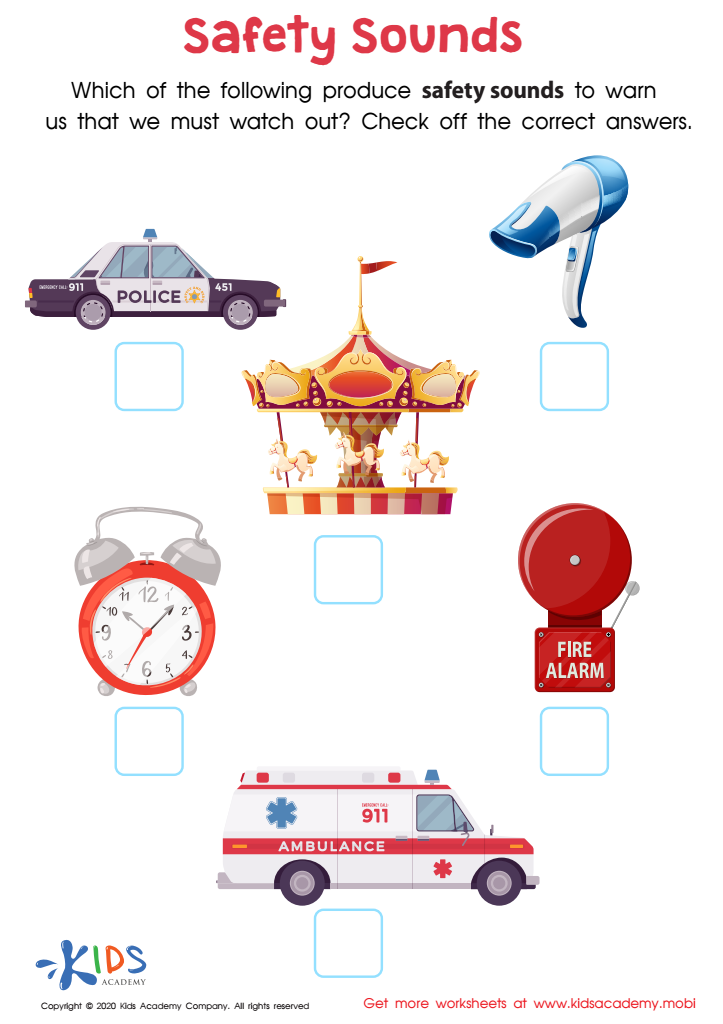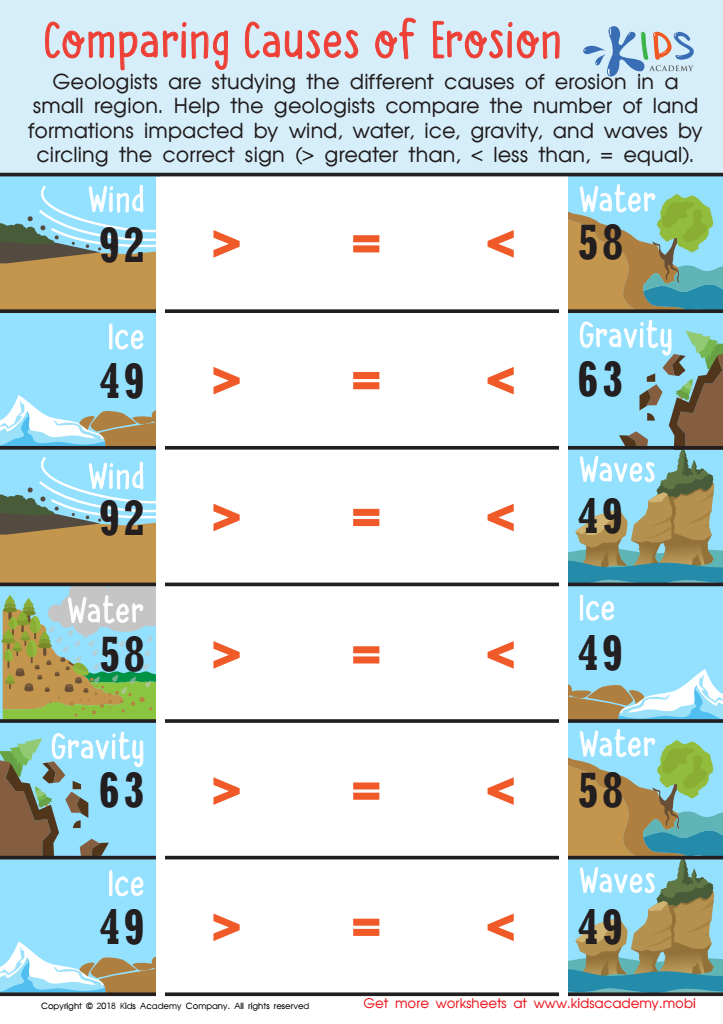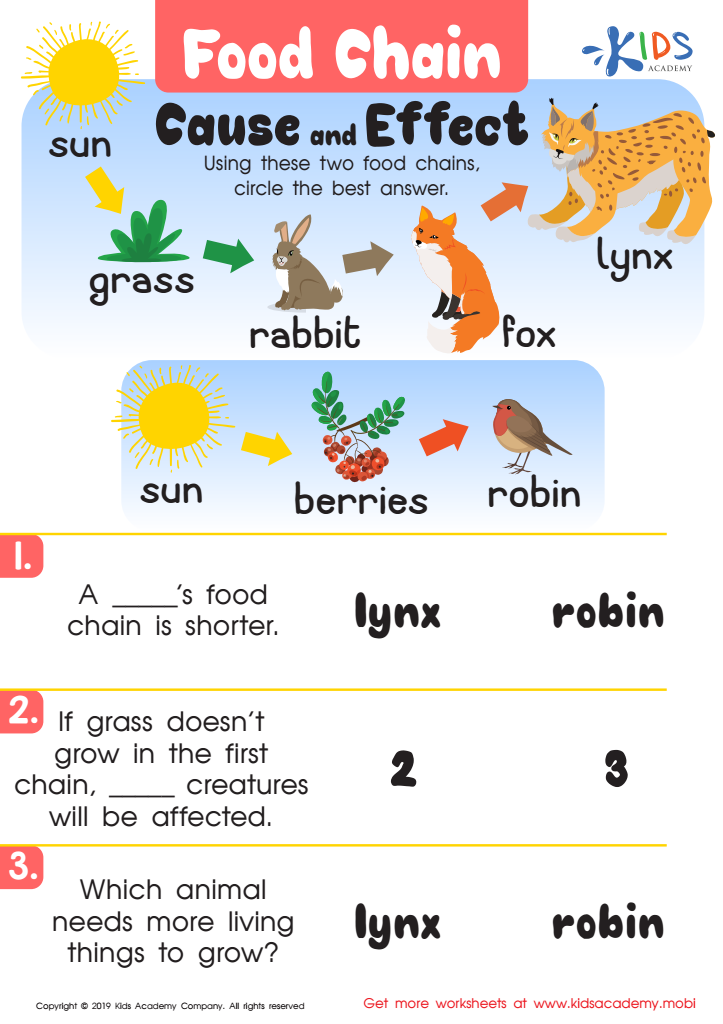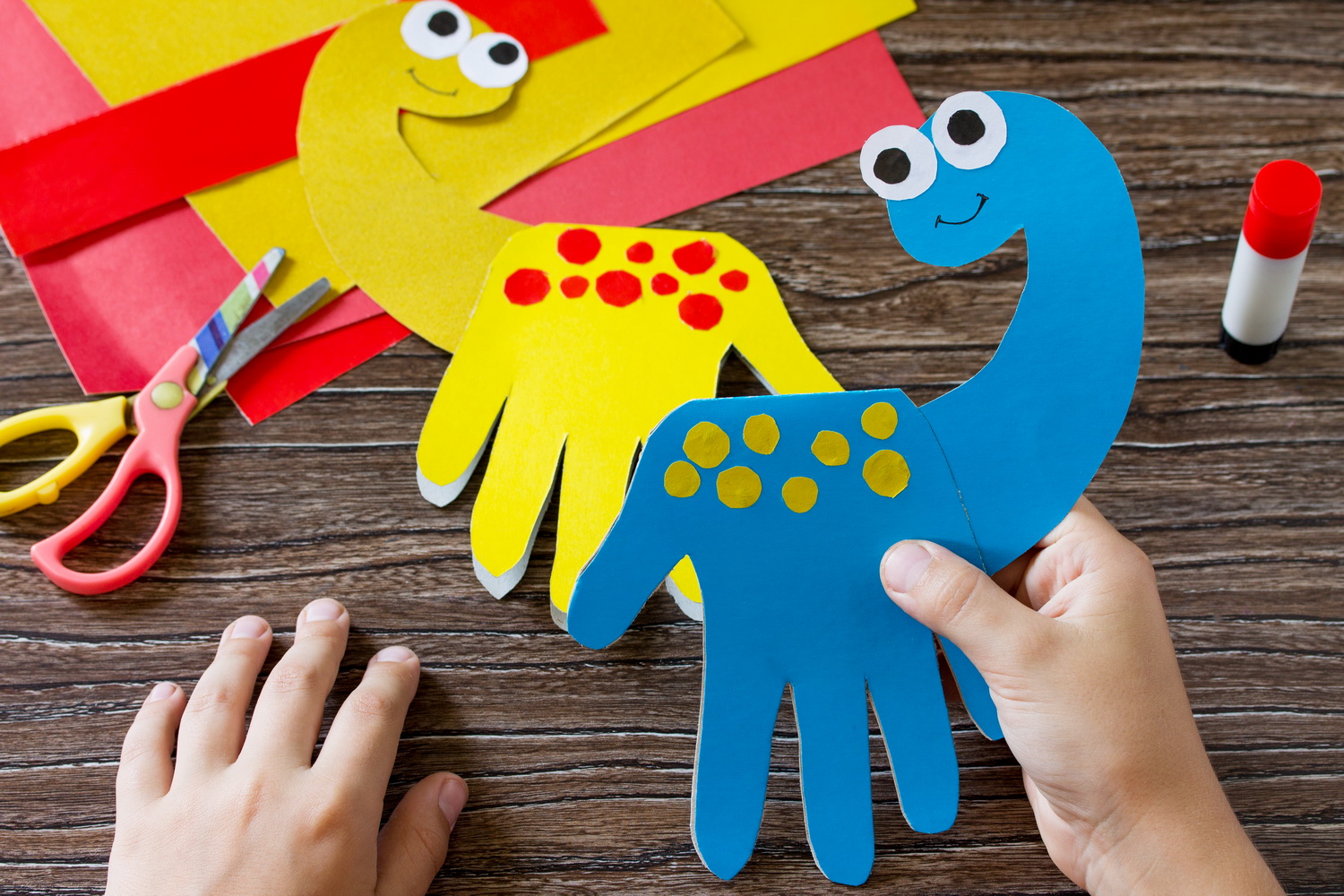Enhancing critical thinking Normal Science Worksheets for Ages 3-9
3 filtered results
-
From - To
Our "Enhancing Critical Thinking Normal Science Worksheets for Ages 3-9" are designed to stimulate young minds and build foundational skills in scientific inquiry and reasoning. These engaging worksheets encourage children to observe, analyze, and draw conclusions about the natural world. With age-appropriate activities, kids develop critical thinking abilities essential for their academic growth. Each worksheet offers fun, educational tasks that challenge young learners to explore and understand scientific concepts while honing their problem-solving skills. Perfect for classroom or home use, these worksheets support early learning and foster a lifelong love of science and discovery.


Safety Sounds Worksheet


Comparing Causes of Erosion Worksheet


Food Chain Cause Worksheet
Enhancing critical thinking in science for children aged 3-9 is fundamental for their intellectual development and lifelong learning. At these formative years, children are naturally curious and eager to explore the world around them. Introducing them to critical thinking in science nurtures their innate curiosity and lays a strong foundation for future academic success.
Critical thinking teaches children to question, analyze, and evaluate information methodically rather than accepting it at face value. When a child engages in age-appropriate science activities, such as simple experiments or observations, they practice skills like hypothesis formation, problem-solving, and logical reasoning. These skills are not only crucial for scientific inquiry but are also applicable across all areas of learning and daily life.
For many parents and teachers, fostering these skills early helps children become independent thinkers who can face complex problems with confidence. This empowerment enhances their academic achievement, boosts self-esteem, and instills a love for lifelong learning. In a rapidly evolving world, these children grow up to be innovative thinkers, capable of adapting to new challenges.
Ultimately, embedding critical thinking in early science education supports children's overall cognitive development, encourages curiosity, and equips them with essential skills for future educational and personal success, making it a top priority for parents and educators alike.
 Assign to My Students
Assign to My Students



















